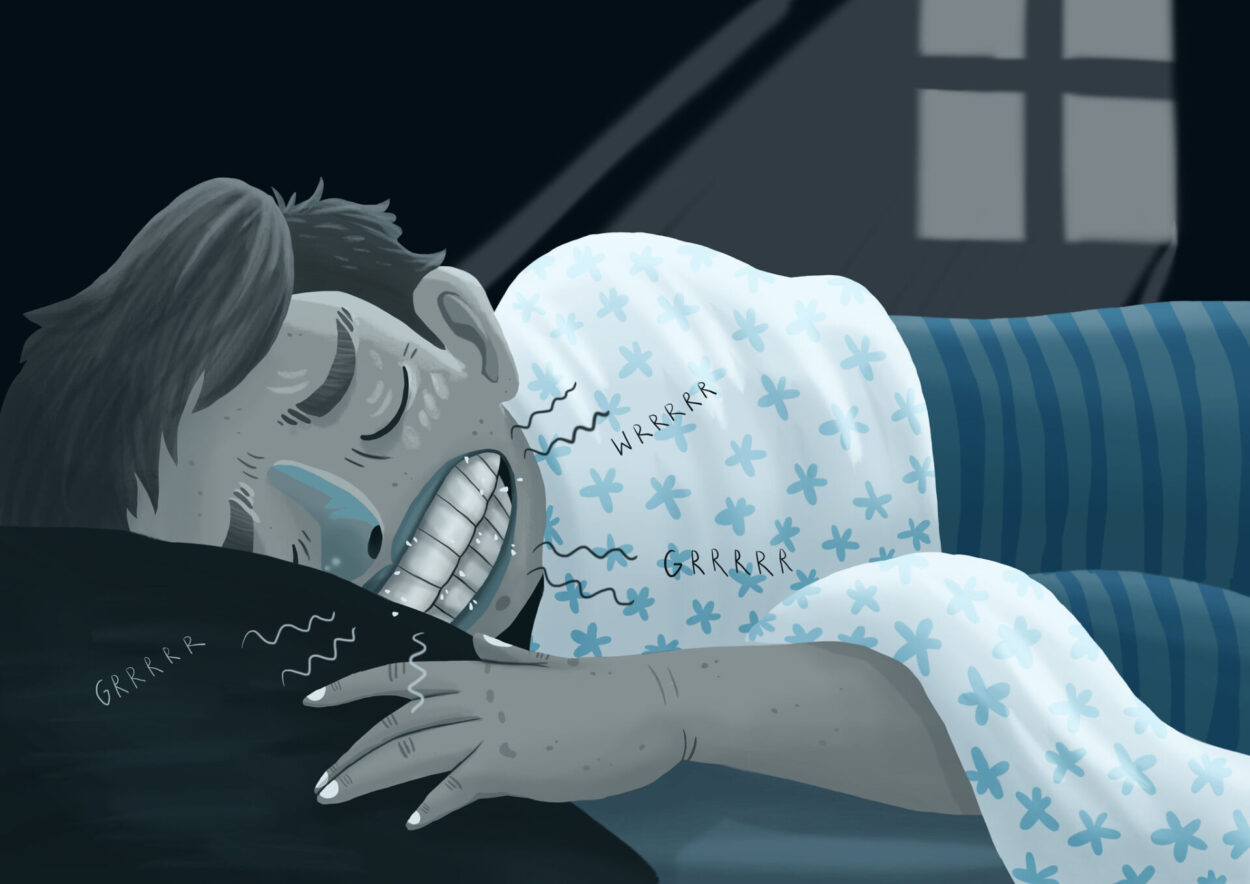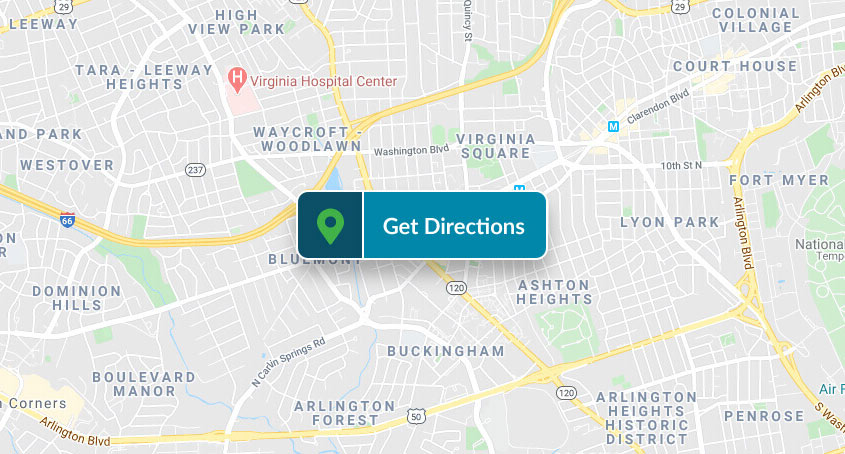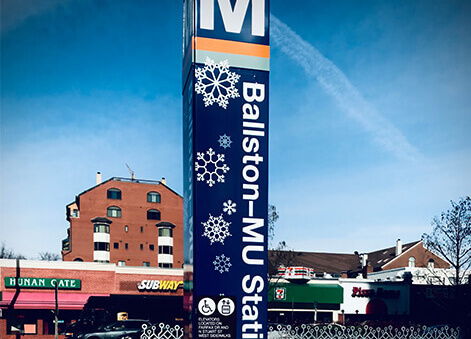Chronic grinding and clenching of your teeth as you sleep can cause serious tooth and jaw damage. But how do you know it’s happening? And what can you do about it?
Symptoms of Teeth Grinding at Night
Your dentist can usually tell if you grind your teeth at night by asking questions about your symptoms and evaluating the health of your enamel. Temporomandibular joint dysfunction can also be associated with teeth grinding, so during your consultation we will assess whether there are any problems with these joints.
If you do grind your teeth while you sleep, you’ll likely notice some symptoms when you’re awake. If you notice any of these warning signs, schedule a consultation with your dentist as soon as possible:
- A sore jaw
- Pain in your face muscles
- Sore neck and shoulder muscles
- Earaches
- Ringing in your ears
- Headaches
- Tooth sensitivity
- Cracked and broken teeth
What to Do About Nighttime Teeth Grinding
Reducing your daytime stress and anxiety and relaxing your jaw before bed can help reduce grinding. We also offer special night guards. These are like mouthguards, except instead of protecting your teeth while you play a sport, they protect your teeth from grinding. They hold your jaw in a comfortable position and cushion your upper and lower teeth. Clean your night guard at least once a week with a mild cleanser. You should also rinse your night guard with water after each use.
Treatment for Teeth Grinding in Arlington, VA
Chronic teeth grinding, which is also known as bruxism, can result in painful damage to your smile. Treatments like night guards can help protect your smile and reduce tension in your jaw. Please contact us today if you have additional questions or want to schedule a consultation with Dr. Matney at Ballston Dental Care in Arlington, VA!
Bruxism image from Authority Dental under CC 2.0



